2023 SIAM Science Policy Fellows Announced
We are excited to announce the 2023 SIAM Science Policy Fellowship Program recipients. This program engages early career professionals in science policy and advocacy. Fellowship recipients learn about the workings of science policy as it pertains to our discipline by participating in SIAM’s Committee on Science Policy (CSP) meetings and conducting relevant activities to further SIAM’s science policy efforts.
Each spring, the CSP meets with representatives of agencies (such as the National Science Foundation and the Department of Energy) that are relevant to our discipline and visits congressional offices to promote the importance of research funding, graduate training, and undergraduate education in applied mathematics and computational science.
The 2023 fellowship recipients are:
- Julie Bessac
- Victor Churchill
- Jeffrey Larson
- Bashir Mohammed
- Jake Price
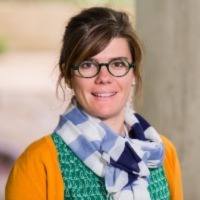
Julie Bessac
National Renewal Energy Laboratory
Julie Bessac received her bachelor’s degree in fundamental mathematics in 2008 and master’s degree in probability and statistics in 2011 from the University of Rennes 1, France. She earned her Ph.D. in 2014 in applied mathematics from the University of Rennes 1, France. From 2014 and 2017, she was a post-doctoral appointee in the mathematics and computer science division at Argonne National Laboratory. Since 2017, she has been a computational statistician at Argonne. Her research focuses on the statistical modeling, forecasting, and uncertainty quantification for diverse applications, such as geophysical processes and their applications to energy systems, computer science, or nuclear physics.
Why did you apply for this fellowship?
As part of a U.S. Department of Energy laboratory at Argonne National Laboratory, I am particularly interested in learning how science programs and their funding are decided and developed, as these directly impact my short-term and long-term research activities.
What are you most looking forward to as a SIAM Science Policy Fellow?
I am looking to meeting with policy makers and federal agency officials but also to getting to know SIAM’s Committee on Science Policy members.
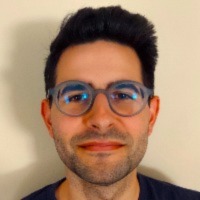
Victor Churchill
The Ohio State University | Trinity College
Victor Churchill’s post-doctoral work at The Ohio State University and Ph.D. research at Dartmouth College have been focused on developing data-driven algorithms for problems in computational science that have a broad impact in applications in science and engineering such as numerical weather prediction, molecular dynamics simulations, combustion modeling, and radar imaging. This research is part of the puzzle in solving sweeping real-world problems in an interdisciplinary and collaborative way. His work has incorporated a range of disciplines across applied and computational mathematics and statistics including machine and deep learning, dynamical systems, data science, Bayesian statistics, uncertainty quantification, numerical analysis, and PDEs. He prides himself on contributing creative and meaningful ideas to new projects and having a holistic approach to collaboration and leadership in research environments to instill passion in the next generation of scientists.
Why did you apply for this fellowship?
Both my Ph.D. and post-doctoral work have been funded in part by federal grants obtained by my advisors from the Air Force Office of Scientific Research. As somewhat of a product of federal funding in applied math and computational science myself, I applied to this fellowship because I believe I am well-positioned to advocate for continuing funding in critical research areas of particular interest to the federal government.
What are you most looking forward to as a SIAM Science Policy Fellow?
I am excited to learn more about the most effective ways to advocate for our research area at the federal level. I know that this fellowship will benefit my career by giving me a more comprehensive perspective on how a lot of academic research is funded.
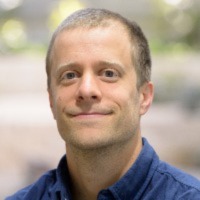
Jeffrey Larson
Argonne National Laboratory
Jeffrey (Jeff) Larson is a computational mathematician in the Mathematics and Computer Science Division at Argonne National Laboratory. He develops, analyzes, and implements algorithms for solving difficult numerical optimization problems. He is especially interested in algorithms for solving problems in quantum information science, simulation optimization, and vehicle routing. Jeff earned his Ph.D. in applied mathematics from the University of Colorado Denver in 2012. He joined Argonne in 2014 as a postdoctoral appointee after a postdoctoral position at the KTH Royal Institute of Technology.
Why did you apply to this fellowship?
I applied to learn more about the initial stages of U.S. science policy and funding processes. I'm interested in advocating for applied mathematics and computational science at the national level.
What are you most looking forward to as a SIAM Science Policy Fellow?
I am excited to learn about how SIAM’s Committee on Science Policy helps in the development of new federal initiatives. I am also interested in learning about the federal budget/appropriations process.
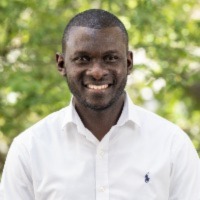
Bashir Mohammed
Intel Labs
Bashir Mohammed is an AI research scientist and engineer at Intel Labs. Previously, at Lawrence Berkeley National Lab, his research focused on AI and machine learning for intelligent networks, automatic control systems, Quantum communication networks, and data provenance in HPC and distributed systems. He earned his Ph.D. in computer science from the University of Bradford, United Kingdom. He was a postdoctoral research fellow on the Deep Learning and AI High-Performance Network (DAPHNE) project at Berkeley Lab. Following that, he was a staff computational research engineer at Berkeley Lab, where he was part of the Quantum Application Network Testbed for Novel Entanglement Technology (QUANT-NET) project that builds a physical quantum distributed network testbed based on entanglement. He is a Berkeley Lab research SLAM award winner, and in 2019 he was among six postdoctoral fellows invited to Washington D.C. to speak to the legislators and Capitol Hill audience about their research.
Why did you apply for this fellowship?
I am interested in public policy, and I want to become a better advocate for computational science and applied mathematics.
What are you most looking forward to as a SIAM Science Policy Fellow?
I look forward to learning more about critical legislative issues concerning this field, interfacing with federal officials, understanding how the U.S. federal budget and appropriation process works, and working on the National Quantum Initiative policy issue.
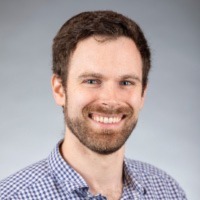
Jake Price
University of Puget Sound
Jake Price earned his Ph.D. from the department of applied mathematics at the University of Washington in 2018. He is an assistant professor of mathematics at the University of Puget Sound. His research interests include multiscale simulation methods, numerical analysis, and scientific computing. He is passionate about undergraduate mathematics education, especially mentored student research.
Why did you apply for this fellowship?
I applied because I am passionate about mathematics education, and I think it is critical that we advocate forcefully for investment in it to tackle problems like the climate crisis. I particularly am interested in guiding investments towards shifts in high school mathematics education goals and towards funding research at small liberal arts colleges and other teaching-focused institutions.
What are you most looking forward to as a SIAM Science Policy Fellow?
I am most looking forward to learning how to effectively advocate for the things that I am passionate about and how to use my voice to make a difference for mathematics education and students.
Stay Up-to-Date with Email Alerts
Sign up for our monthly newsletter and emails about other topics of your choosing.



